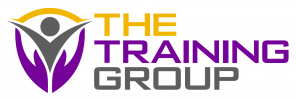Unit 1: Understanding roles, responsibilities and relationships in education and training
Learners will be taught how to analyse the application of pedagogical principles, use assessments, plan lessons and prepare for the classroom environment.
Understanding and using inclusive teaching and learning approaches in education and training
Planning to meet the needs of learners in education and training (Copy 1)
Assessing learners in education and training (Copy 1)
Using resources for education and training (Copy 1)
Unit 2: Teaching, Learning & Assessment In Education & Training (Copy 2) (Copy 1)
Learners will be taught about their responsibilities as educators, educational legislation, meeting the needs of the learners and how to teach in a student-centred manner.
Unit 3: Theories, Principles & Models In Education & Training (Copy 2) (Copy 1)
Learners will be taught ways in which theories, principles and models of learning can be applied to teaching, learning and assessment.
Unit 4: Wider Professional Practice & Development In Education & Training (Copy 2) (Copy 1)
Learners will be taught about the concepts of professionalism and dual professionalism in education and training and how they can apply this within the classroom.
Unit 15: Inclusive Practice (Copy 2) (Copy 1)
Learners will be taught how to review the impact of personal, social and cultural factors on learning and teaching.
Unit 17: Preparing for the mentoring role (Copy 2) (Copy 1)
Learners will be taught how to analyse the skills and qualities required for a the mentoring role teachers play in education.
Unit 25: Developing, using and organising resources in a specialist area (Copy 2) (Copy 1)
Learners will be taught how to analyse how theories, principles and models of inclusive curriculum design can be used to inform resource development in own specialist area.
No questions yet
Be the first to ask your question! You’ll be able to add details in the next step.
Ask a new question
Add an answer
Setting Ground Rules and boundaries
The importance of establishing ground rules and boundaries in a mentoring relationship cannot be overstated. These guidelines create a supportive, respectful, and productive environment that fosters trust and facilitates mentee growth. Key aspects of ground rules and boundaries include mutual respect, confidentiality, time management, communication preferences, and setting realistic expectations.
Mutual respect is essential in any mentoring relationship, as it ensures that both mentor and mentee feel valued, heard, and appreciated. By treating each other with respect, mentors and mentees create a positive atmosphere that encourages open communication and effective collaboration.
Confidentiality is crucial, as it helps build trust between mentor and mentee. Both parties must feel confident that their conversations and shared information will be kept private, allowing them to openly discuss sensitive topics, challenges, and personal experiences.
Time management is another important aspect of establishing boundaries. Mentors and mentees should agree on the frequency, duration, and scheduling of their meetings, ensuring that both parties are committed to making the most of their time together. Setting clear expectations around punctuality and availability also helps maintain a professional and respectful relationship.
Communication preferences play a significant role in the effectiveness of a mentoring relationship. By discussing and agreeing on preferred communication channels and styles, mentors and mentees can ensure that their interactions are efficient and fruitful. This may include identifying the most effective methods for providing feedback, as well as determining the level of formality or informality in their conversations.
Finally, setting realistic expectations is vital for maintaining a healthy and productive mentoring relationship. Mentors and mentees should have a clear understanding of their roles, responsibilities, and the scope of their relationship. By setting achievable goals and expectations, both parties can work together to foster the mentee’s personal and professional growth.



